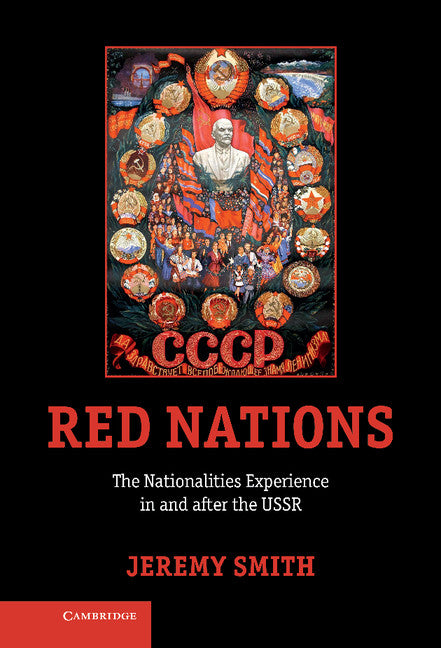Freshly Printed - allow 8 days lead
Couldn't load pickup availability
Red Nations
The Nationalities Experience in and after the USSR
This book surveys the experiences of non-Russian USSR citizens both during and following the collapse of the Soviet Union.
Jeremy Smith (Author)
9780521111317, Cambridge University Press
Hardback, published 12 September 2013
412 pages, 6 tables
22.9 x 15.2 x 2.4 cm, 0.7 kg
'In sum, the overall conception of this volume breaks new ground, which deserves continued attention from scholars, and more accessible treatment. The volume raises our awareness of how the legal perspective may be helpful and even essential for understanding virtually any aspect of the Cold War.' Sergei Antonov, The Russian Review
Red Nations offers an illuminating and informative overview of how the non-Russian republics of the Soviet Union experienced communist rule. It surveys the series of historical events that contributed to the break-up of the Soviet Union and evaluates their continuing resonance across post-soviet states today. Drawing from the latest research, Professor Smith offers comprehensive coverage of the revolutionary years, the early Soviet policies of developing nations, Stalin's purges and deportations of small nationalities, and the rise of independence movements. Through a single, unified narrative, this book illustrates how, in the post-Stalin period, many of the features of the modern nation state emerged. Both scholars and students will find this an indispensable contribution to the history of the dissolution of the USSR, the reconstruction of post-Soviet society, and its impact on non-Russian citizens from the years of the Russian Revolution through to the present day.
1. Introduction: the prison-house of nations
2. Dispersal and reunion: revolution and Civil War in the Borderlands
3. Bolshevik nationality policies and the formation of the USSR
4. Nation-building the Soviet way
5. Surviving the Stalinist onslaught, 1928–41
6. The Great Patriotic War and after
7. Deportations
8. Territorial expansion and the Baltic exception
9. Destalinisation and the revival of the Republics
10. Stability and national development: the Brezhnev years, 1964–82
11. From reform to dissolution, 1982–91
12. Nation-making in the post-Soviet states
13. The orphans of the Soviet Union: Chechnya, Nagorno, Karabakh, Abkhazia, South Ossetia and Transdniester
Conclusion.
Subject Areas: Military history [HBW], National liberation & independence, post-colonialism [HBTR], European history [HBJD]


